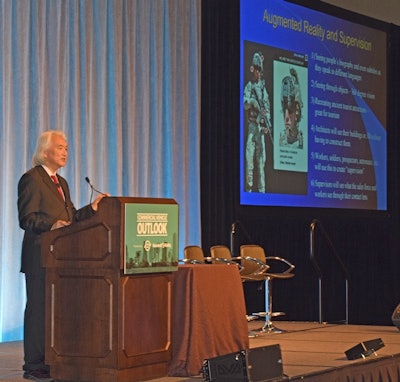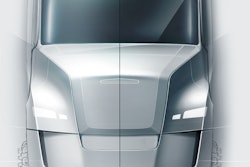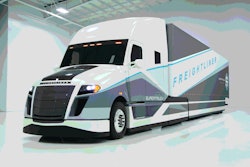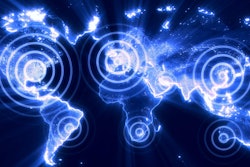
Renowned Scientist Dr. Michio Kaku paints a picture of the future where computers and the Internet will be so integral to everyday life that they will “be everywhere and nowhere.” In fact, “the word computer will disappear from the English language,” he said.
Speaking at the opening of Trucking’s Future Now, the 6th Commercial Vehicle Outlook at the Omni Hotel in Dallas, Kaku told attendees that before long, Internet-enabled glasses will let them meet each other and instantly see a biography, translated in subtitles if they speak a foreign language. A contact in your eye will display the entire Internet with just a blink. Surgeons will be able to use the Internet to see a patient’s medical records during surgery. President Obama, he joked, would no longer need a teleprompter.
“You’ll never be lost; you’ll always have instant information,” he said, noting that such technologies are already being used in a Pentagon project called Land Warrior. A soldier clips it to his helmet, flips it down and he’s online and can see the entire battlefield on the Internet.
Before long, our entire lives will be digitized, Kaku said. Walls in our homes will be computers as thin and cheap as paper. If you have a pain, you go to the wall and an animated doctor appears, capable of answering 99 percent of your medical questions. Lawyers will be similarly accessible, he said, and this technology will extend beyond your wall to a contact in your eye or your car’s windshield. Computers “won’t replace doctors or lawyers” but will eliminate the need to see them in person for mundane services.
Capitalism will also be digitized, he said, a revolution that’s already taken place in the music industry. “Music industry executives thought we would always buy CDs and records,” he said, “but Apple controls it today.” When it comes to buying consumer goods, you’ll upload your 3D measurements to the Cloud, send them to a manufacturer and it will create a piece of clothing just for you. “All garments will fit, all products will fit our tastes,” he said. “This is mass customization through computers and 3D printing.”
“Robots are bad at non-repetitive tasks. They can’t replace dock workers, policemen, firefighters, garbage men or construction workers.” — Michio Kaku
All of this translates into something, Kaku calls perfect capitalism. “Consumers don’t know what things cost. Producers don’t know what the consumer wants,” he said. “In the future the consumer will go into a store, his contact lens computer will know what’s available, how much it costs, and who’s cheating him,” on price. Companies will fight back against this newly informed consumer by using data mining, big data, targeted marketing and branding to differentiate themselves, he said.
One of the biggest opportunities for digitization is in medicine, Kaku said. In the future you’ll swallow a computer the size of an aspirin with a TV camera chip and magnet inside to guide it through your intestine, instead of a colonoscopy. Smart toilets will be “the super weapon that will defeat cancer,” he said, by detecting cancer proteins in your system 10 years before the cancer forms. Computerized clothing will constantly monitor your health — “essentially a doctor in your clothing,” he said.
Turning to transportation, he cautioned that even driverless cars and autonomous trucks don’t eliminate the need for humans. When the car or truck stops, there’s still the need to take inventory, sign forms and keep track of things, he said. “Robots are bad at non-repetitive tasks,” he said. They can’t replace dock workers, policemen, firefighters, garbage men or construction workers.
Similarly, drones won’t be able to replace trucks for hauling most types of freight, but will instead be used for niche deliveries to remote areas. Adoption of drones won’t go much further until we build the infrastructure to track and regulate them, he said.
Ultimately, Kaku’s advice for adoption of technology is to “see the wave coming, anticipate it and ride it to riches and fortune,” he said. “If it’s you versus technology, you will lose every time.”











